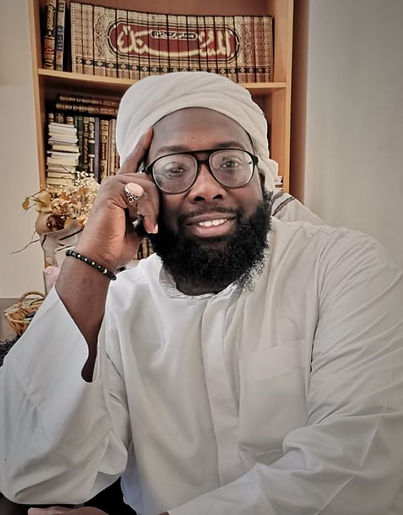
About Hanbali Disciples
Our Vision, Heritage, and Team
Our Vision
Hanbali Disciples was founded to preserve and revive the Hanbali school of law and creed — a tradition that unites knowledge with devotion and practice with spiritual realization.
Guided by the legacy of Imām Aḥmad ibn Ḥanbal and the generations of scholars who carried his path, we strive to make authentic Hanbali learning accessible to today’s seekers through structured study, heritage research, and community engagement.
Our story is rooted in reverence for the past, clarity in the present, and a sincere commitment to serve future generations of believers.
Join our exclusive al-Aṣḥāb community.
Join our private al-Aṣḥāb circle for member discussions, Q&A notifications, and early updates on courses and heritage releases.
Our Heritage
The Hanbali school of thought stands among the great Sunni traditions of law and creed, known for its devotion to revelation, sincerity in worship, and steadfast defense of the Sunnah. Its foundations were laid by Imām Aḥmad ibn Ḥanbal (may Allah have mercy on him) — a man whose life embodied scholarship, humility, and sacrifice in service of divine truth.
Al-Muwaffaq Ibn Qudāmah, in the introduction to al-Mughnī, wrote that Allah appointed among the early generations of this Ummah guiding Imams who paved the principles of Islam and clarified its difficult rulings. Their agreement is proof, and their disagreement is mercy. Hearts, he said, “are revived by hearing about their lives, and happiness is attained by following in their footsteps.” Among these Imams, Allah preserved the mention of a select few according to their rank and virtue — and among the highest of them stands Imām Aḥmad ibn Ḥanbal.
The great scholars described him as unmatched in his mastery of ḥadīth, his knowledge of Qur’anic exegesis, his asceticism, and his courage during the Mihnah (Inquisition). Ibn al-Jawzī and ʿAbd al-Qādir al-Badrān record that even Imām al-Shāfiʿī testified to Aḥmad’s superiority in the sciences of ḥadīth, saying, “You are more knowledgeable than I am in this field; when you find an authentic report, inform me so I may follow it.”
For his vast memorization, precision in narration, and unparalleled restraint from worldly gain, the jurists of Islam turned to his school for guidance. As Ibn al-Jawzī wrote, “Aḥmad combined what others could not — immense knowledge with profound scrupulousness.”
Though the Hanbali school produced countless luminaries across the centuries — from Ibn Qudāmah to Ibn Taymiyyah, Ibn Rajab, and al-Buhūtī — its followers remained few.
Ibn ʿAqīl al-Baghdādī explained that the adherents of other schools often gained prominence through official appointments and judicial posts, while the Hanbalis, out of piety, turned toward worship and asceticism rather than worldly recognition.
Hanbali Disciples seeks to honor this heritage — to revive a tradition rooted in evidence, illuminated by spirituality, and safeguarded by the sincerity of those who carried it. In studying their works, we aim not only to learn their rulings, but to embody their reverence for Allah, their love for the Messenger ﷺ, and their humility before the truth.

Founder
Shaykh John Starling III is a student of knowledge and servant of the Islamic tradition, specializing in Hanbali law, creed, and spiritual discipline.
For more than two decades, he has devoted himself to the study of the Qurʾān, Sīrah, ʿAqīdah, Fiqh, and spiritual refinement—helping guide a new generation of students along the path.
As Founder and Chief Guide of Hanbali Disciples, he strives to make the school’s intellectual and spiritual heritage accessible through structured, sincere, and practical learning.
Recognized for his thoughtful approach and commitment to balance, he emphasizes theological clarity, disciplined practice, and the inner cultivation that connects knowledge to faith.
Education & Experience
Shaykh John holds an Associate Degree in Arabic and Islamic Studies, a Bachelor of Arts in Islamic Mission and Theology, and a Master of Arts in Islamic Studies. He also earned a Bachelor of Science in Business Management and a Master of Nonprofit Management and Philanthropy, combining traditional scholarship with sound organizational insight.
He is currently pursuing a Doctor of Philosophy in Hanbali Theology and Spirituality, focusing on Imām al-Wāsiṭī’s integration of creed and spiritual wayfaring.
His formation blends formal study with close mentorship under scholars of the Hanbali school. Through translation and commentary projects, he works to make classical Arabic texts approachable for English-speaking audiences.
Alongside teaching, he has served as Imam and Executive Director of community institutions, integrating faith education, family engagement, and organizational development. His combined academic and pastoral experience enables him to guide Hanbali Disciples as a space for both learning and spiritual growth.


